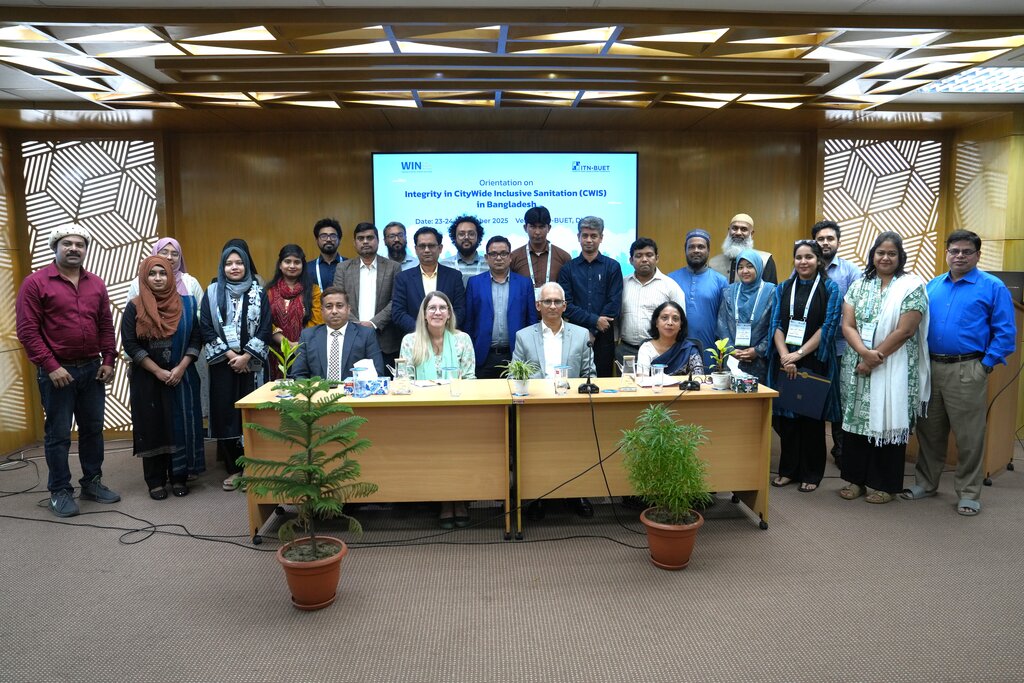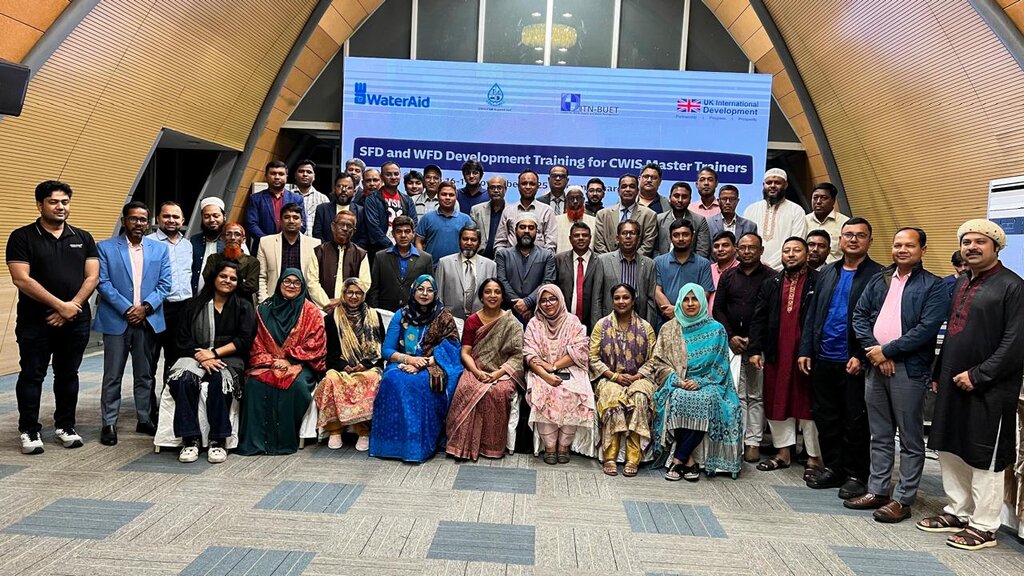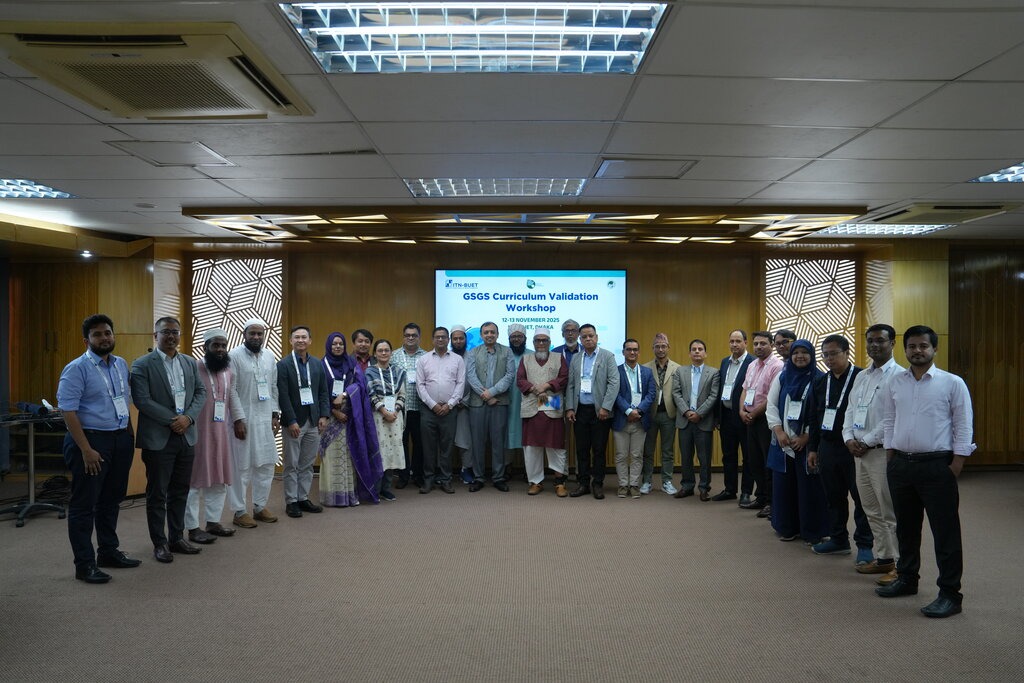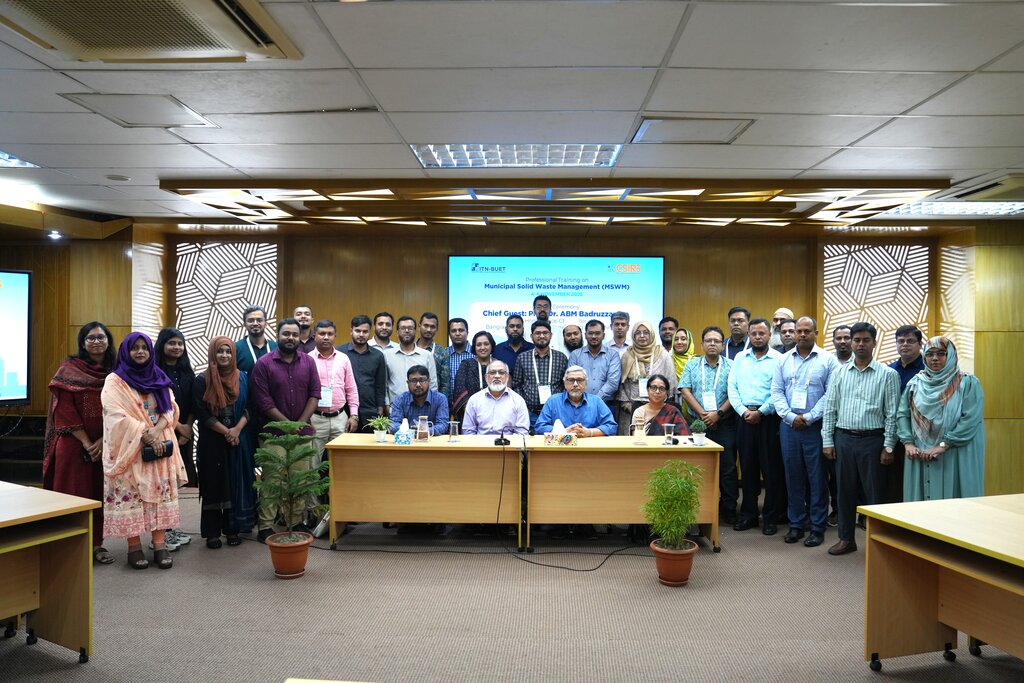Sanitation sector experts from Nepal and Bangladesh emphasised the need for collaborative efforts towards comprehensive solutions and regional solidarity in promoting safe and sustainable sanitation. Environment and Public Health Organization (ENPHO) from Nepal and ITN-BUET brought together over 30 experts and professionals from the Citywide Inclusive Sanitation Alliance Nepal (CWISAN) and the FSM Network Bangladesh in a virtual meeting on 29 May 2024.
The meeting aimed to strengthen partnerships between the two nations by exchanging knowledge and best practices to enhance safe sanitation practices. Bhawbna Sharma, Executive Director of ENPHO, expressed optimism during the event’s opening, anticipating strengthened networking between the two alliances.
Chief Technical Advisor of UN-Habitat Nepal, Sudha Shrestha, highlighted CWISAN’s initiatives in Nepal, focusing on influencing policy, advocacy, capacity building, and implementing sanitation services.
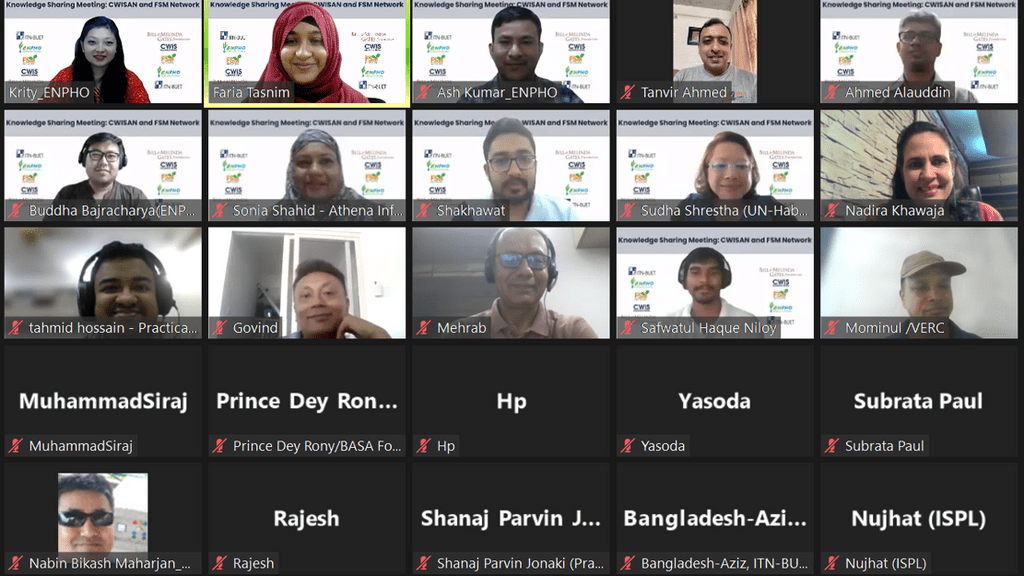
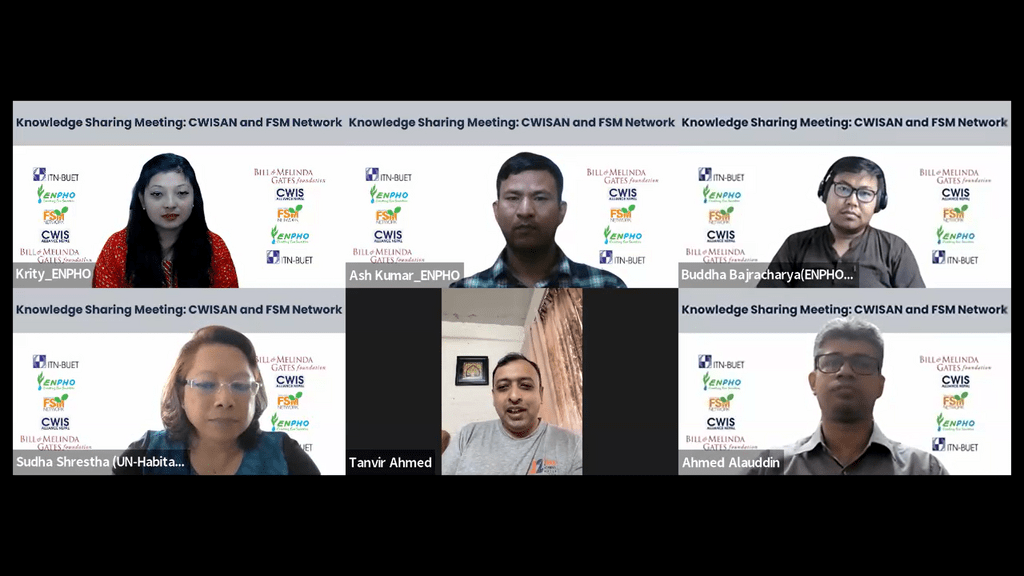
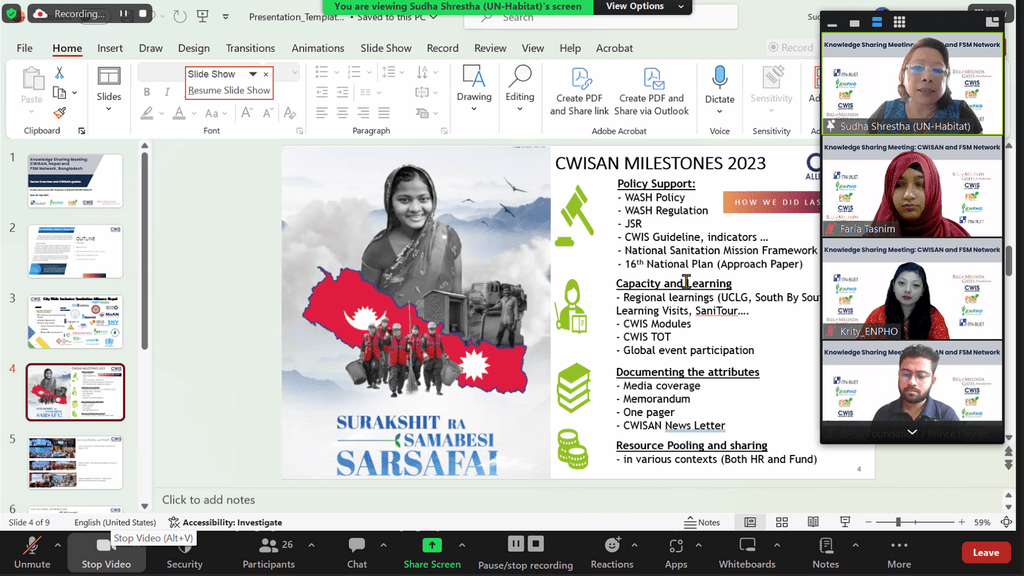
Bangladesh FSM Network’s representative, Shahnaz Parvin Jonaki, outlined the network’s strategic plans and priorities for sustainable faecal sludge management (FSM). She detailed key activities such as FSM Conventions, Sweepers Conventions, policy dialogues, and various educational events. The focal person of the Network, Mehrab Ul Goni, underscored that this event marks the initial phase of collaboration between the two alliances and stressed the importance of continuing this cooperation in the future.
Buddha Bajracharya of ENPHO underscored insights and opportunities gleaned from Nepal’s implementation of the shit flow diagram intervention.
Business Development Expert of WSUP Bangladesh, Muhammad Muhiuddin Siraj, introduced the “SWEEP” sanitation enterprise development model, aiming to enhance private sector engagement in the sanitation industry. He emphasised its potential replication in Nepal and Bangladesh to drive market-driven solutions and improve sanitation services.
Water Sector Lead at SNV Nepal, Nadira Khawaja, shared insights on the challenges and lessons learned from implementing faecal sludge management (FSM) across four cities of Nepal. She underscored the significance of informed decision-making processes for ensuring long-term sustainability amidst evolving governmental roles.
Tahmid Hossain of Practical Action Bangladesh presented their innovative strategy to formalize and dignify informal sanitation workers through cooperatives, business support, capacity building, and health protections.
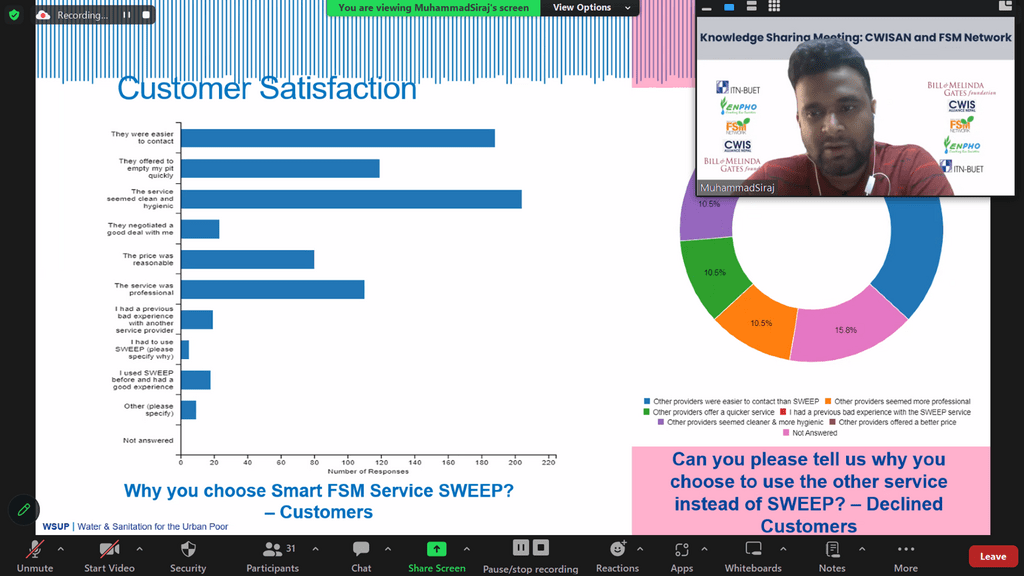
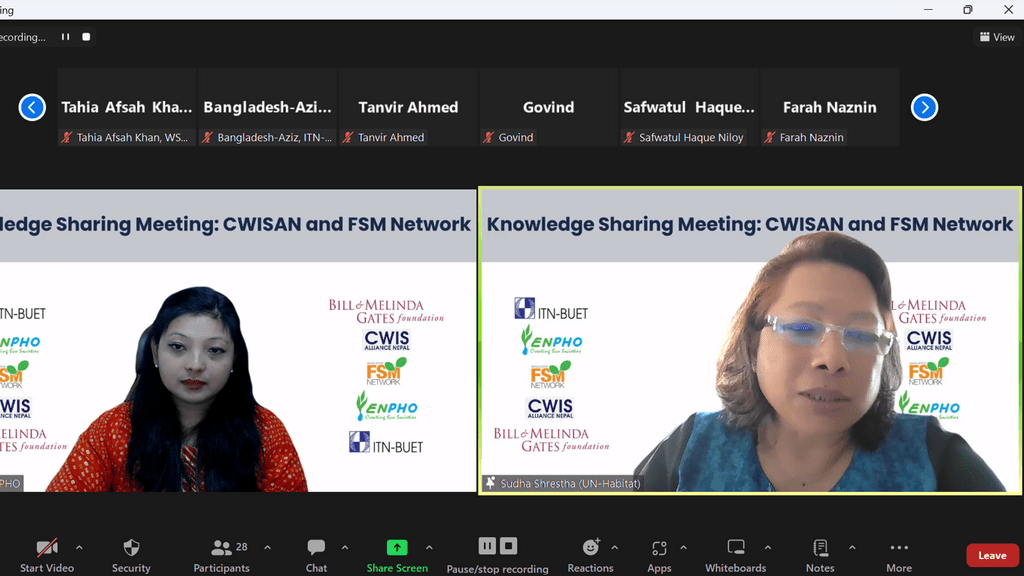

Sonia Shahid, representing Athena Infonomics Bangladesh, highlighted the achievements of Lalmonirhat Paurashava in promoting sanitation through a model of ownership and responsibility guided by the CWIS approach.
From WaterAid Bangladesh, System Strengthening Expert, Shakhawat Hossain, discussed the development of CWIS Action Plans for five municipalities under the National and Bilateral WASH Advocacy (NaBWASHA) project. Tahmid Islam from the same organisation proposed joint efforts in international forums to present comprehensive solutions to sanitation challenges, a sentiment echoed by Sudha Shrestha, who expressed hope for regional solidarity to advance sanitation efforts.
Participants of the event highlighted that CWISAN and the FSM Network can enhance their approaches to tackling sanitation challenges through insights gained from the knowledge-sharing meeting. Director of ITN-BUET, Dr. Tanvir Ahmed, commended the participants for their active engagement and suggested regular coordination meetings and collective representation of South Asia at international forums to advance this initiative further.


